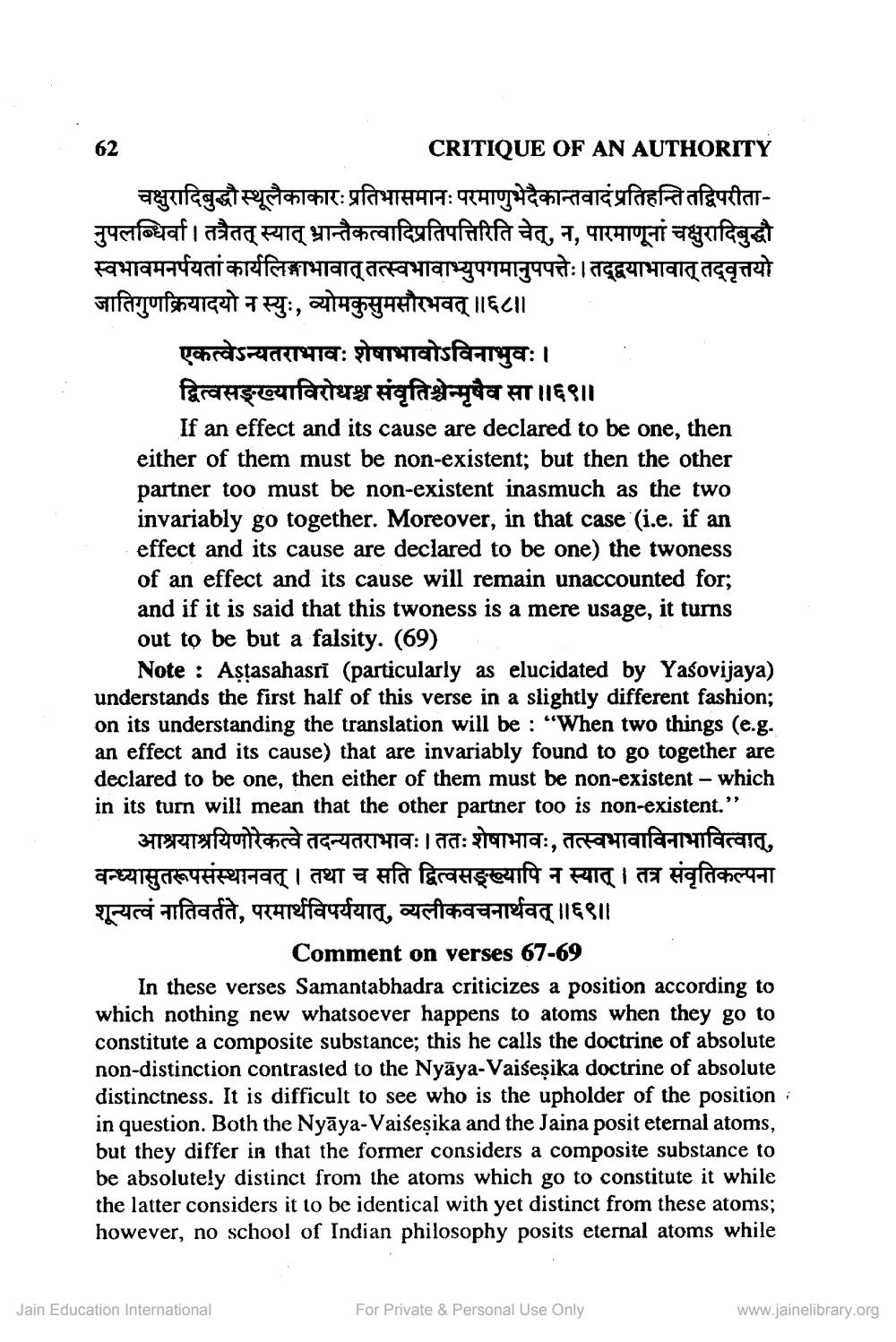________________
CRITIQUE OF AN AUTHORITY चक्षुरादिबुद्धौ स्थूलैकाकारः प्रतिभासमानः परमाणुभेदैकान्तवादंप्रतिहन्ति तद्विपरीतानुपलब्धिर्वा । तत्रैतत् स्यात् भ्रान्तैकत्वादिप्रतिपत्तिरिति चेत्, न, पारमाणूनां चक्षुरादिबुद्धौ स्वभावमनर्पयतां कार्यलिङ्गाभावात्तत्स्वभावाभ्युपगमानुपपत्तेः। तद्वयाभावात् तवृत्तयो जातिगुणक्रियादयो न स्युः, व्योमकुसुमसौरभवत् ॥६८॥
एकत्वेऽन्यतराभावः शेषाभावोऽविनाभुवः । द्वित्वसङ्ख्याविरोधश्च संवृतिश्चेन्मृषैव सा ॥६९॥
If an effect and its cause are declared to be one, then either of them must be non-existent; but then the other partner too must be non-existent inasmuch as the two invariably go together. Moreover, in that case (i.e. if an effect and its cause are declared to be one) the twoness of an effect and its cause will remain unaccounted for; and if it is said that this twoness is a mere usage, it turns out to be but a falsity. (69)
Note : Astasahasri (particularly as elucidated by Yasovijaya) understands the first half of this verse in a slightly different fashion; on its understanding the translation will be : "When two things (e.g. an effect and its cause) that are invariably found to go together are declared to be one, then either of them must be non-existent - which in its turn will mean that the other partner too is non-existent." __आश्रयाश्रयिणोरेकत्वे तदन्यतराभावः। ततःशेषाभावः, तत्स्वभावाविनाभावित्वात्, वन्ध्यासुतरूपसंस्थानवत् । तथा च सति द्वित्वसङ्ख्यापि न स्यात् । तत्र संवृतिकल्पना शून्यत्वं नातिवर्तते, परमार्थविपर्ययात्, व्यलीकवचनार्थवत् ॥६९॥
Comment on verses 67-69 In these verses Samantabhadra criticizes a position according to which nothing new whatsoever happens to atoms when they go to constitute a composite substance; this he calls the doctrine of absolute non-distinction contrasted to the Nyāya-Vaiseșika doctrine of absolute distinctness. It is difficult to see who is the upholder of the positi in question. Both the Nyāya-Vaisesika and the Jaina posit eternal atoms, but they differ in that the former considers a composite substance to be absolutely distinct from the atoms which go to constitute it while the latter considers it to be identical with yet distinct from these atoms; however, no school of Indian philosophy posits eternal atoms while
Jain Education International
For Private & Personal Use Only
www.jainelibrary.org




